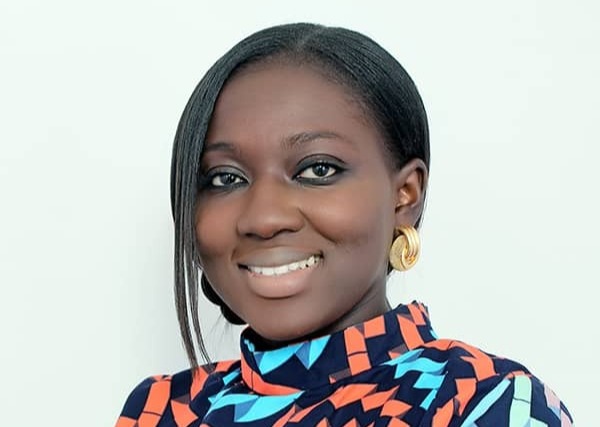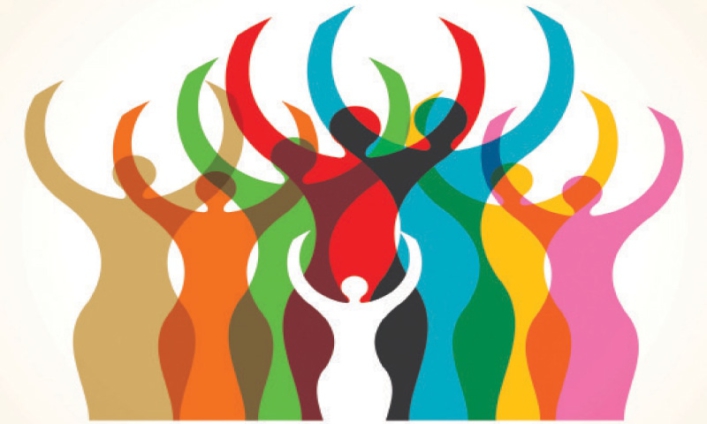Intersectionality, Patriarchy, Hegemonic masculinity- these are a few technical terms that are common to the gender discussion on a rather “technical level”. However, on the social intervention front, two key expressions that stand out are “the empowered” and “the unempowered".
Undoubtedly the needs and wants of a woman varies based on her circumstances and personal experiences which cannot be simply categorised based on gender. However, in terms of livelihood and crucial societal needs, the Ghanaian woman can be placed under the empowered woman and the unempowered woman.
Of these two categories, each has its peculiar needs and expectations.
The Nana Addo- led government taking cognisance of the above-mentioned categories, has maintained a two-pronged approach to ensure that the unempowered is empowered and the empowered is amplified. It is no mere coincidence that His Excellency Nana Addo Dankwa Akufo- Addo was appointed African Union Gender Champion.
The Nana Addo government’s approach to women empowerment and/or amplification is purpose-driven, and result-oriented. There is no room to accommodate tokenism as a populist chess move.
Under the NPP, there have been several firsts for women- a first female Chief Justice, first female Chief of Staff, first female Minister for Communications, etc. Additionally, women are capably represented in key governance positions in the Nana Addo- led government.
As a young female, I was given the opportunity to head an organisation despite my age. Women are duly given a seat at the table and their capabilities are respected, utilised and amplified.
Social interventions such as Free SHS, 1D1F and 1 Village One Dam have educated the girl child, created jobs for women and improved the livelihoods of the unempowered.
The provision of improved access to MASLOC loans with 80% disbursement to females, increased financial support for women through youth initiatives such as NEIP, and the exponentially improved macroeconomic stability have all improved the lives of the empowered.
The Free SHS policy, a flagship programme of the Nana Addo-led government has enrolled 1,199,750 students, out of which 47.9% are female.
Additionally, the young girl can now get access to female hygiene products, particularly, sanitary pads, at a heavily subsidised price due to support for local production and promised removal of import duties on sanitary pads.
The LEAP Program has also been refocused to benefit female- headed households with a majority of the beneficiaries enrolled onto the NHIS for free.
Furthermore, the 2020 Manifesto of the New Patriotic Party promises to protect our progress over the past four years and further improve and uphold the livelihood of all women.
In the health sector, breast cancer treatment is now covered by the National Health Insurance Scheme, 36 maternity blocks and wards have been constructed and in the next term, import taxes on sanitary towels will be scrapped while improving support for local production.
Besides these interventions specific to gender, the revived NHIS, 1 District 1 Ambulance, improved health infrastructure and innovative service delivery such as the drone system have all significantly improved the lives of women.
For education, the flagship program of Free SHS has not only educated young girls thus empowering them but also helped mothers to educate their male children.
Now a mother does not have to worry about education costs up till university. The Nana Addo- led Government in the next term will introduce the “no guarantor” University loan. This further secures the path of education of young girls and the end of the days of mothers selling their cloth to put their children through school.
The focus on the education of the future generation will also see to the implementation of GALOP (Ghana Accountability for Learning Outcomes Project). GALOP will improve the quality of rural schools through investment in infrastructure and skills development for teachers.
Young girls in rural areas will not only receive education but improved quality education.
Building an inclusive government has been one of the strong pillars of the Nana Addo-led government. This is carefully demonstrated in the plethora of programs and projects that have met the needs of people living with disability, especially women.
The Presidential Empowerment for Women Entrepreneurs with Disability supported 850 women living with disability, with GHC 2 million.
On the athletic front, a ‘Women in Sports’ program has been instituted to support, discover and nurture female athletes.
For the empowered higher middle-class woman, free SHS, planting for food and jobs, 1 Village 1 Dam, 1 Ambulance 1 Constituency and 1 District 1 Factory may seem not to be directly beneficial.
However, it is worth to note that the macroeconomic stability we enjoy gives us as women, the fertile ground to utilise the tools of our empowerment to improve our livelihoods.
Drawing inspiration from the biblical analogy, we as empowered women may already know how to fish but need a calm sea to be able to fish successfully. This has certainly been the focus of the NPP government, and Ghana can boast of giant strides made in this direction.
The volumes of foreign direct investment received in Ghana as well as the establishment of the secretariat of the African Continental Free Trade Area in Ghana are testimonies to behold.
Indeed the establishment of the secretariat of the African Continental Free Trade Area in Ghana will position Ghana as the pivot of business in Africa thus creating new and innovative opportunities for women in the formal and informal sectors through increased trade.
On the legal front, the Nana Addo-led Government has committed to the passage of an all-inclusive Affirmative Action bill.
In addition, the Labour (Domestic Workers) Regulations, 2020, L.I. 2408, which came into force in July 2020, has provided a framework for the protection of the economic rights and dignity of domestic workers, most of whom are female.
It is crucial to note that the law now enjoins all employers of domestic workers to give employment contracts to these workers, to pay overtime, and to make social security contributions to the appropriate institution or scheme.
I have listened to and participated in the debates for longer maternity leave periods. The position I have taken, informed by my experiences, is that, a better approach to reaching a mutually beneficial and less risky outcome is to advocate for companies to improve their internal maternity and paternity leave policies.
This way, employers will not employ more men than women to avoid the vacuum created by what may seem to be a government-imposed longer maternity leave. And yes, refusing to employ a person based solely on gender is unlawful, but the practicality is that the employer will find innovative ways and means to disqualify the woman, if the company’s policies do not support a more robust maternity leave.
In awareness of all these challenges, the Nana Addo government is in negotiation with employer associations and stakeholders on how to improve maternity care through mutually beneficial means.
The livelihood of a woman has always been pivotal to her empowerment. It is important for us as a people to understand that the feminist needs of the African woman varies from that of the Western woman.
One critical variation is the fact that the African woman holds firm the basic needs and collective welfare of family as a priority. This is evident in our Ghanaian society. Additionally, basic needs reign supreme when identifying priorities.
As a government of placed priorities and with shelter being one of such basic needs, the NPP government led by Nana Akufo Addo has instituted a rent advance system whereby rents of tenants will be paid in advance by Government.
Four out of every ten women in Ghana are small business owners, according to the MasterCard Index of Women Entrepreneurs 2019. Thus, creating a conducive business environment is vital.
MASLOC disbursements, NBSSI loans (70% of loans were given to women), NEIP support and 1D1F are some of the interventions that have shored up the businesses of small and medium enterprises (SMEs). The likes of fashion designer Nora Bannerman has benefitted from these progressive social interventions.
In March 2018, energy tariffs for businesses were reduced by 30% further giving SMEs the much-needed impetus to grow and create more jobs.
The President seeks to create a community for a shared Ghanaian future. A future where men and women inhale equal opportunities. The achievements of the NPP in barely 4 years have touched the lives of women, directly and indirectly empowering us to do more for ourselves.
It is therefore our duty as women to protect the progress made and save the numerous interventions that have served well the good people of Ghana. Nana Addo has certainly performed better, Nana Addo has kept faith with his promises and indeed Nana Addo cares for women.
A vote for Nana Addo Dankwa Akufo-Addo is a vote for 4 more years of progress for women.
****

The author is a lawyer and is currently pursuing a Masters Degree in Gender, Peace and Security. She is also the Ag. Director of the National Folklore Board.
Latest Stories
-
If Ibrahim Traoré goes civilian, it may be because of Mahama’s inauguration – Prof Abotsi
10 seconds -
Kwaku Asare welcomes Mahama’s reduction in Ministries but advocates legislative process to cement it
26 minutes -
I’m concerned about failure to implement AWW report – Prof Abotsi
44 minutes -
US returns $50m in alleged stolen funds to Nigeria
53 minutes -
Mahama restructures Ministries, reduced from 30 to 23 – See full list
60 minutes -
2 siblings die after being locked in water drum by 6-year-old sister
1 hour -
Mahama shouldn’t have openly directed Parliament to elect Speaker – Prof. Kwaku Asare
2 hours -
Daily Insight for CEOs: The power of delegation – Empowering leaders within your organization
2 hours -
Livestream: Newsfile discusses inaugurations, prisoner pardon and failed CJ petition
2 hours -
Revisiting the forensic audit EC will increase credibility of future elections – Omane Boamah
4 hours -
Africa Food Systems Parliamentary Network urges governments to increase investment in agriculture
12 hours -
AU and partners urge youth to get involved in efforts to transform continent’s food systems
12 hours -
Fire kills 3-year-old at Asawase-Dagomba Line in Ashanti Region
13 hours -
Paskal A.B. Rois: How Mahama inspires me
13 hours -
Complete abandoned projects in Akatsi North District – Chiefs to Mahama
13 hours

